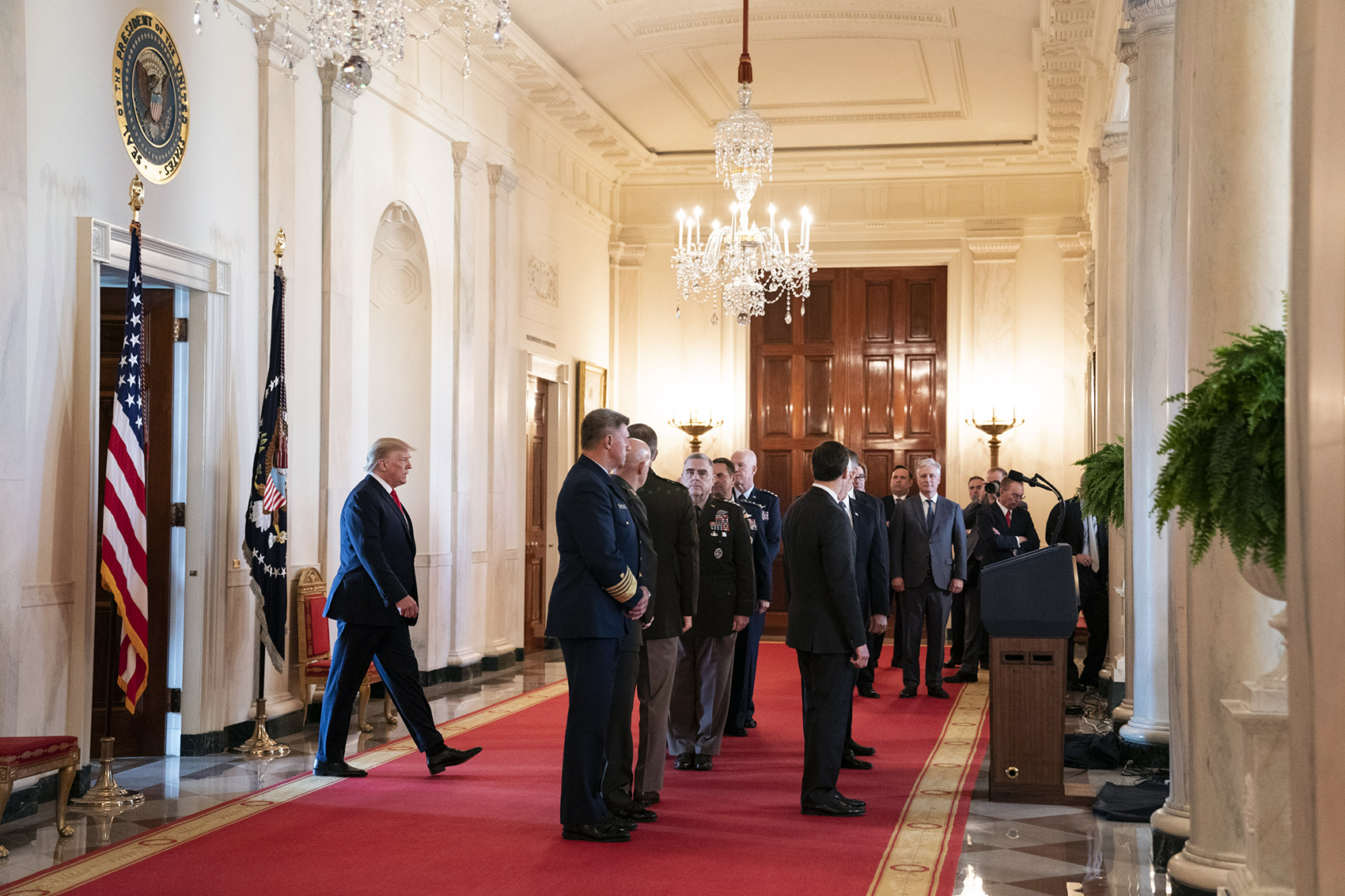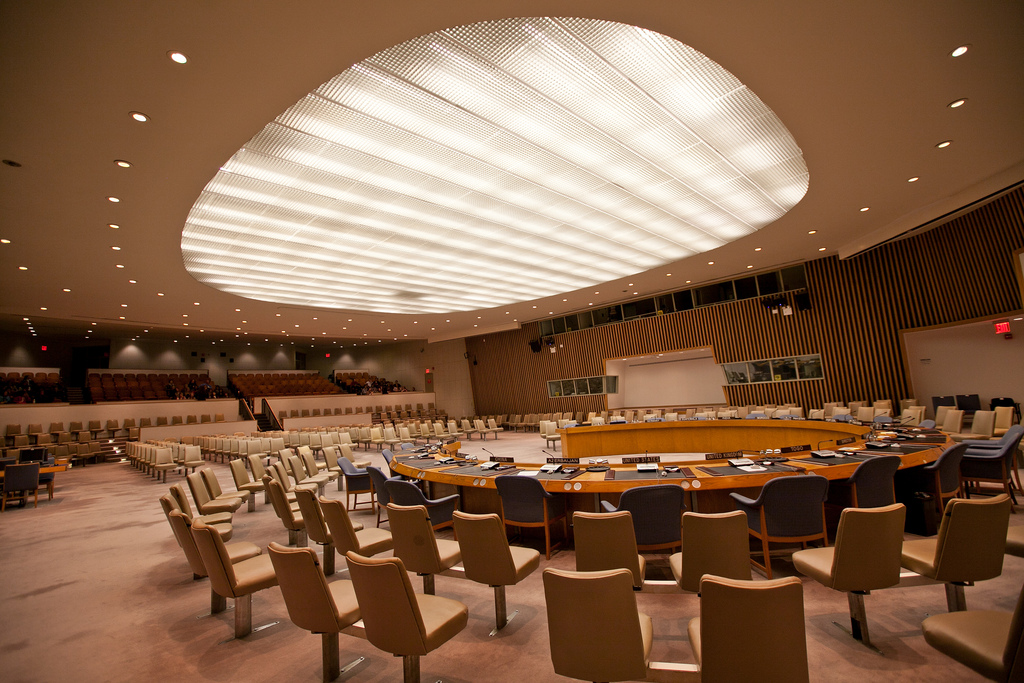Guest post by Thomas Gift and Andrew M. Bell
Iran’s strike against US forces after the death of Qassem Soleimani raises new questions about how Donald Trump might retaliate should tensions between the countries re-escalate. Although the president has walked back his most extreme threat—to target Iranian cultural sites—that proposal, which would constitute a war crime under the Geneva Conventions, remains concerning, especially because it adds to other examples of Trump challenging US military and international law.
Since May 2019, Trump has—against the advice of senior commanders—intervened on behalf of four US servicemembers accused or convicted of war crimes: Army officers 1st Lt. Michael Behenna, Maj. Mathew Golsteyn, and 1st Lt. Clint Lorance, as well as Navy Chief Petty Officer Edward Gallagher. He’s also fired Secretary of the Navy Richard Spencer for criticizing how he dealt with the Gallagher case and publicly questioned other aspects of the law of war.
Impacts on US Military Culture
Trump’s pattern of flouting international and military law and norms matters for the conflict with Iran because it suggests that even the most extreme military options—including ones inconsistent with established law—aren’t off the table should a crisis emerge.
More broadly, however, Trump’s degradation of norms matters because of what it signals to US servicemembers: that following the laws of war isn’t necessarily a priority. Leaders play a key role in establishing the organizational culture of any institution. That’s particularly true for professionalized militaries. As commander-in-chief, Trump doesn’t just influence the US military’s strategic operations, he also helps to shape how servicemembers behave on the battlefield. The effects of his words and actions filter down to the individual men and women in uniform who serve the US in countries around the world, many of which are in the throes of intra- and inter-state conflicts. From unit commanders to rank-and-file enlistees, US combatants routinely make life-or-death decisions, and hold considerable discretion over when to wield violence, against whom, and how.
Trump’s challenges to the laws of war obscure respect for military rules and send conflicting messages. On the one hand, US combatants are taught to follow orders and adhere to training that prohibits the unauthorized use of force. On the other hand, their commander-in-chief seems to imply—through word and deed—that following the laws of war isn’t essential. That message could make some US servicemembers second-guess the imperative of abiding by the rules amid the “fog of war.”
Why Trump is Different
Trump, of course, isn’t alone in facing charges that he flouts US military and international law. Many of his predecessors in the White House also have problematic records in upholding ethical conduct in conflict. Former President George W. Bush, for example, was severely criticized for advancing torture policies after 9/11 in the fight against terrorism. Yet even if many experts disagreed with his conclusions, Bush at least attempted to make the case that his “enhanced interrogation” program conformed to relevant US and international law.
By contrast, Trump has called the Geneva Conventions a “problem” that makes soldiers “afraid to fight.” In critiquing the US military justice system, he’s mocked: “We train our boys to be killing machines, then prosecute them when they kill!” In defending his threat to target Iranian cultural sites, the president pronounced: “They’re allowed to kill our people…. And we’re not allowed to touch their cultural sites. It doesn’t work that way.”
Unlike any prior US president, Trump dismisses the very validity of the rules and laws that constrain the use of force in the first place.
Weakening Respect for the Laws of War
One might argue that Trump’s ultimate impact on US military behavior will be limited. For instance, referring to Trump’s Iran threat, Secretary of State Mike Pompeo insisted: “[w]e’ll behave lawfully. We’ll behave inside the system.” After Trump’s war crime pardons, Joint Chiefs Chairman Gen. Mark Milley also said that the US armed forces “will not turn into a gang of raping, burning and pillaging throughout…That is not going to happen.” It’s true that the US military’s respect for the law is resilient. Yet that doesn’t mean it can’t weaken.
US military and international laws on armed conflict have developed over many decades. They’re necessary because they constrain the inappropriate use of force. When the president calls into question the importance of the laws of war, servicemembers may be less inclined to comply with them. If the US military wants to enhance both the strength and values of its fighting forces, it needs to ensure that combatants employ only lawful force on the battlefield. Regrettably, Trump’s words and actions could make that less likely.
Thomas Gift (@TGiftiv) is a lecturer in the department of political science at University College London. Andrew M. Bell (@AndrewBellUS) is an assistant professor in the department of international studies at the Hamilton Lugar School of Global and International Studies at Indiana University Bloomington and served with the US Air Force in Iraq and Afghanistan.







